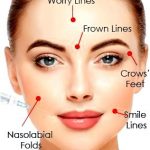
- Antiperspirants. If regular antiperspirants haven’t helped, you might consider using a product having a greater degree of aluminum chloride hexahydrate (brands: Certain Dri, Drysol, Hypercare, Xerac). This is actually the component in antiperspirant that shuts lower sweat ducts. You might consider using a product in the store or else you may speak to your physician in regards to a prescription. You’ll apply these antiperspirants during the night to towel-dried skin several occasions per week. Your physician might point to you put it on every evening or perhaps two times each day for that first week. Next, you’ll put it on a couple of times per week to keep your sweating in check.
- Prescription medicines for hyperhidrosis. Your physician may prescribe medicine to assist stop stimulation from the sweat glands. This medicine might have negative effects for example xerostomia, constipation,and fuzzy vision. Taking it with time can lead to more severe problems. Speak to your physician to find out if this medicine may be helpful for you.
- Medicine to deal with the reason for secondary hyperhidrosis. For those who have secondary hyperhidrosis that is because another condition, medicine that treats that condition might help take control of your sweating. For instance, if stress belongs to what triggers you to definitely sweat heavily, then medicine to deal with anxiety might be helpful for you.
- Iontophoresis. Laser hair removal option involves utilizing a special machine that applies low levels of electricity to seal from the sweat glands. Laser hair removal usually employed for hands and ft.
- Botulinum contaminant type A (brand: Botox treatment). Laser hair removal is usually injected in to the armpits to bar the nerves that create sweating. Botulinum contaminant could work well, but could be costly or painful. Also, often it causes flu-like signs and symptoms. Each treatment methods are effective for around 4 to eight several weeks.
- Surgery. In case your hyperhidrosis is severe along with other treatments haven’t labored, surgery might be a choice. A surgeon may remove or cut nerves that activate certain sweat glands. Or she or he may remove some sweat glands completely. Typically, surgical treatment is used only like a last measure. Lots of people who undergo surgery have new or worsened sweating (known as compensatory sweating) later in existence. Surgery also carries the danger of nerve and artery damage.

Resourse: https://familydoctor.org/condition/hyperhidrosis/
 Proskin Clinics
Proskin Clinics 
